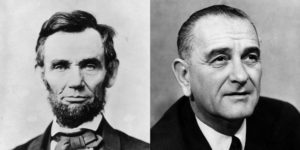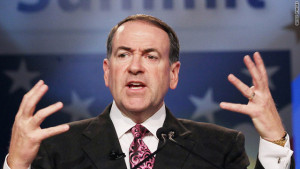Hillary Rodham Clinton’s pile of media endorsements has added a significant new voice.
While I have conceded that endorsements from elite media organs don’t pack the wallop they once did, this one has gotten some traction.
“The Atlantic” has issued its third presidential endorsement in its 159-year history. The first one went to the nation’s first Republican presidential candidate, a guy named Abraham Lincoln, in 1860.
Five score and four years later, in 1964, “The Atlantic” weighed in with an endorsement of President Lyndon Baines Johnson.
Now it has backed Hillary Clinton.
Here’s a snippet from the editorial: “Today, our position is similar to the one in which The Atlantic’s editors found themselves in 1964. We are impressed by many of the qualities of the Democratic Party’s nominee for president, even as we are exasperated by others, but we are mainly concerned with the Republican Party’s nominee, Donald J. Trump, who might be the most ostentatiously unqualified major-party candidate in the 227-year history of the American presidency.”
This is a fascinating development as the campaign heads for its final month. I’m so glad it’s almost over. I am running out of stamina listening to the candidates trashing each other.
“The Atlantic” concludes its editorial endorsement with this: “We believe in American democracy, in which individuals from various parties of different ideological stripes can advance their ideas and compete for the affection of voters. But Trump is not a man of ideas. He is a demagogue, a xenophobe, a sexist, a know-nothing, and a liar. He is spectacularly unfit for office, and voters—the statesmen and thinkers of the ballot box—should act in defense of American democracy and elect his opponent.”
Ouch, man!
To be candid, the endorsement doesn’t convey unbridled confidence in Clinton’s standing. It’s more of a non-endorsement of Donald J. Trump. I suppose that sums up what has shaped up to be the theme of this campaign: The candidates cannot stand on their own record exclusively, so they pound away at their opponents’ weaknesses.
Trump is the most profoundly unqualified and unfit candidate for the presidency most of us ever have seen.
Will this endorsement matter? Will it be the difference between winning and losing? I doubt it. Still, it’s worth your time to read and to digest what the editors of a distinguished publication have to say about the next election for the presidency of the United States.
Oh, I am so glad it’s about to be over.

